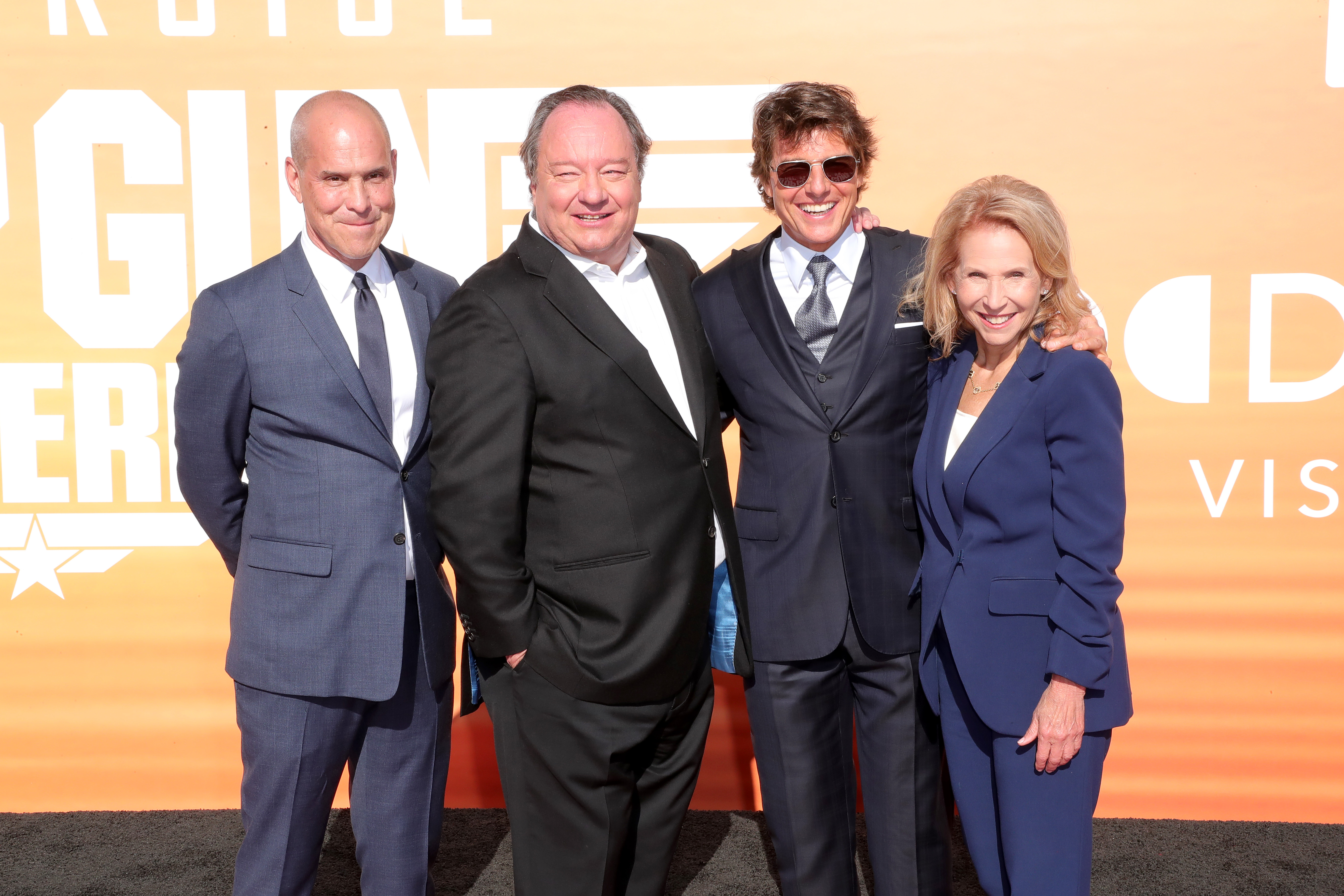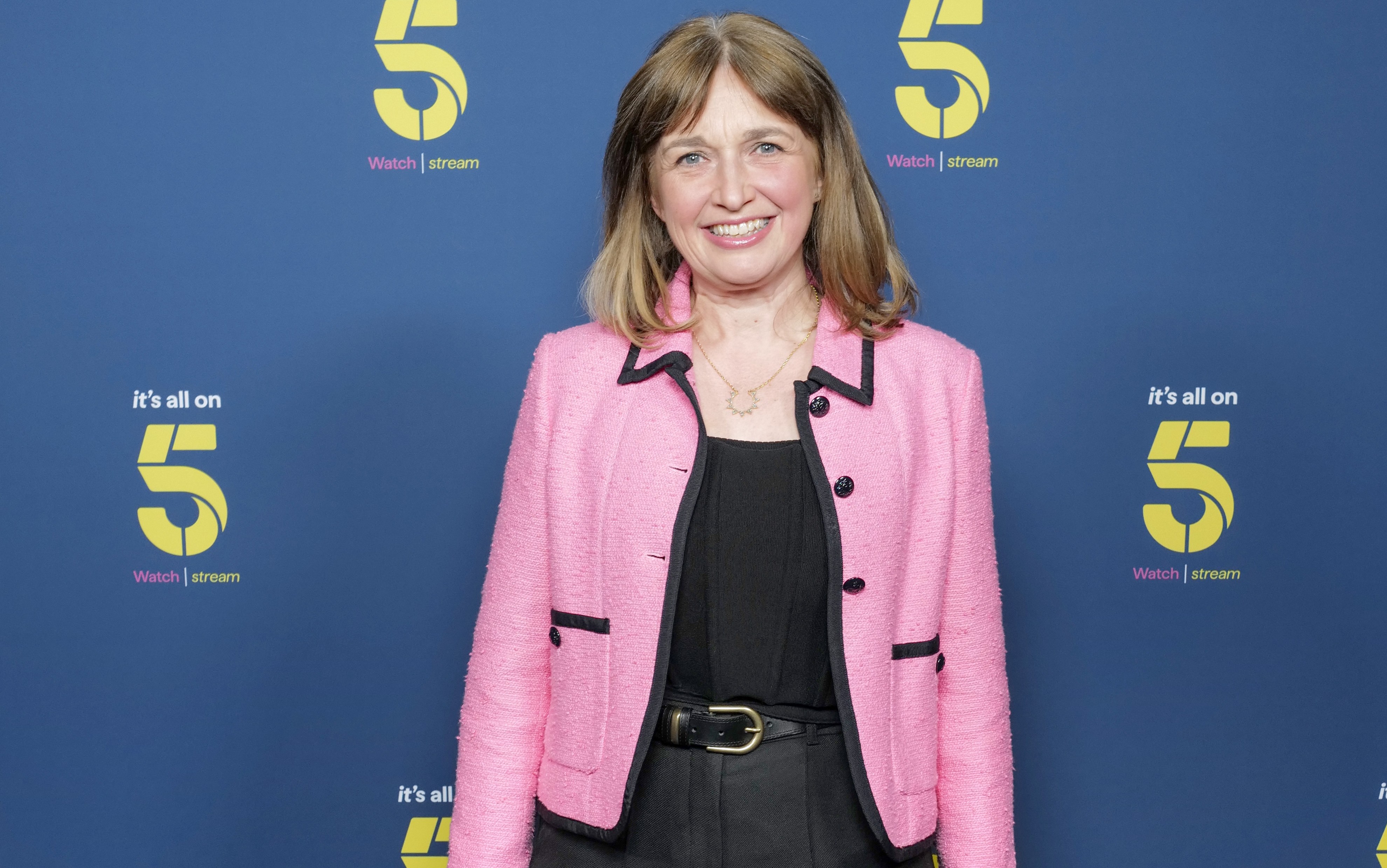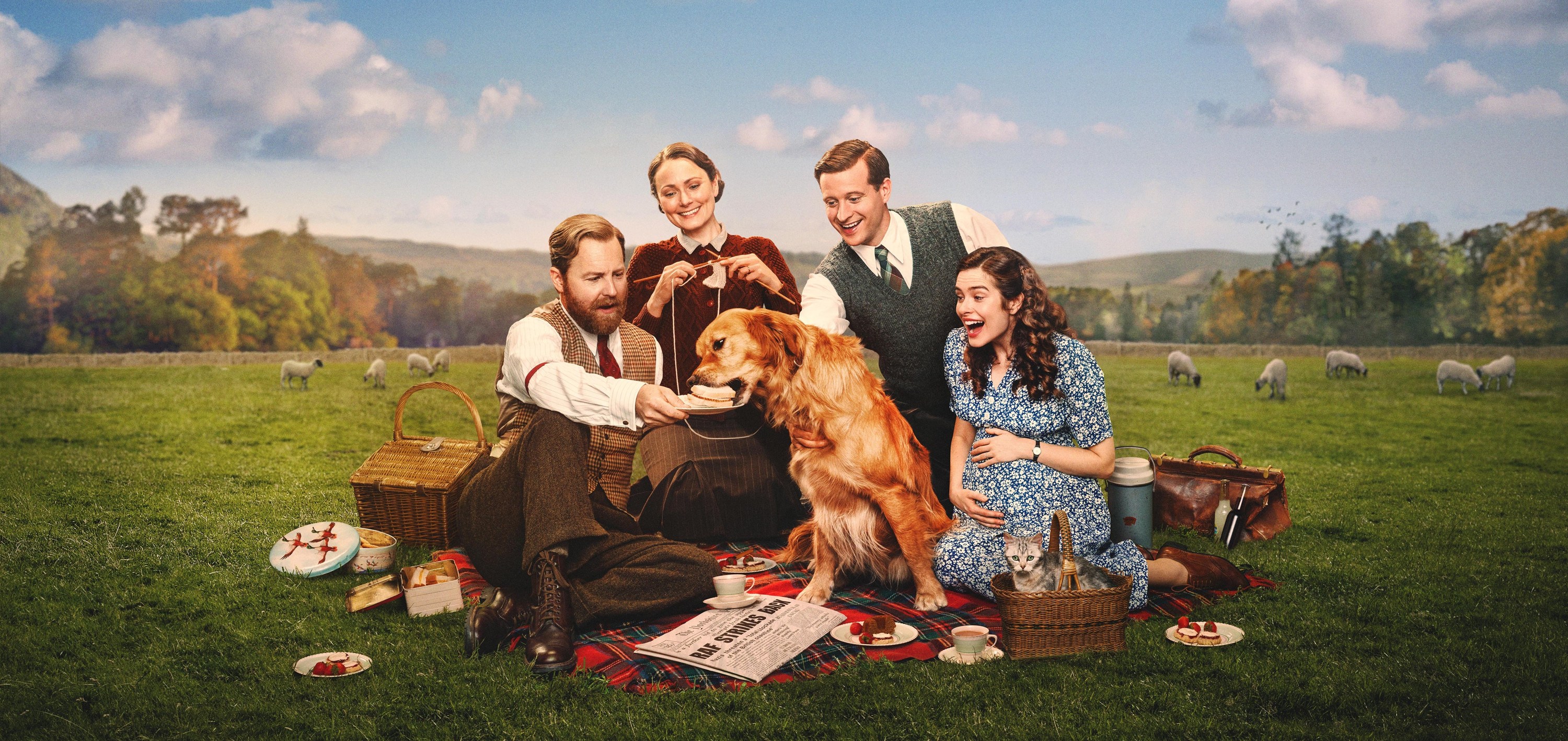A couple of months after she was named president of Channel 5, Sarah Rose flew to New York for a two-hour meeting inside the Manhattan skyscraper of Paramount, the broadcaster’s parent company, best-known for making films including the Mission: Impossible series.
Rose’s mission that day was to persuade Paramount’s chief executive, the US media veteran Bob Bakish, to commit new funding to supporting her planned revamp and rebrand for Channel 5 — the fourth in its 28-year history — which would be known as 5.
On the very same day, Bakish, a longstanding supporter of 5 who was part of the team that had bought it back in 2014, abruptly resigned amid speculation of a fallout with Paramount’s majority owner, the media heir Shari Redstone.
Rose was left to make her boardroom pitch to the three company insiders promoted to replace Bakish: co-chief executives George Cheeks, Chris McCarthy and Brian Robbins.

Brian Robbins, Bob Bakish, Tom Cruise and Shari Redstone at the premiere of Paramount’s Top Gun: Maverick in 2022
LEON BENNETT/GETTY IMAGES
In the event, Rose, a former Channel 4 executive who first joined Paramount as its UK chief operating officer in 2020 before becoming president of 5 in February 2024, won the support she needed; she was able to invest in a sizeable marketing campaign and rebrand for her TV channel and streaming service.
The sudden departure of Bakish turned out to be one of several instalments of corporate chaos that have ensued around Paramount over the past year and a half. Rose and her staff at 5 have been forced to watch on amid growing speculation that their company, a small cog in a media machine that also includes MTV, CBS and Nickelodeon, could soon be sold off.
Last July, a couple of months after Rose’s visit to New York, Redstone agreed to sell her stake in Paramount as part of an $8 billion deal with Skydance, a rival movie-maker led by the producer David Ellison. The financial muscle for the deal comes from Ellison’s father, the tech billionaire Larry, and the private equity firm RedBird, which is also nearing a deal to buy the UK’s Telegraph newspaper.

Larry Ellison has provided the financial muscle for the Skydance deal
JUSTIN SULLIVAN/GETTY IMAGES
After 12 months of tumult, during which Paramount has settled a CBS-related lawsuit from President Trump, Ellison’s deal finally looks poised to complete following approval by the Federal Communications Commission. For employees of 5, this brings uncertainty. “I don’t think, truthfully, anyone knows what’s going to happen,” said one insider. Another shrugged and said they were keeping their head down.
Many in the media sector expect Paramount, under its new ownership, to shed some assets and focus on film-making and streaming, including through the Paramount+ service. The result is that 5, even with a fast-growing, free streaming service, looks vulnerable.
One industry veteran questioned whether the new owners would be “at all interested in a little UK channel with an elderly audience”. That is, they added, unless the Ellisons come to see 5 as a vehicle to buy up other British broadcasters, as many expect consolidation within the sector.
Claire Enders, the boss of media research firm Enders Analysis, thinks 5 staff have nothing to fear. “They’re not going to sell Channel 5,” she said, pointing to the broadcaster’s profits and the leadership of Rose, a “great diplomat” whom she predicts will win the affections of Paramount’s next owners.

Since becoming president of 5 in February 2024, Sarah Rose has been plunged into corporate chaos
DARREN GERRISH/GETTY IMAGES
The other considerable uncertainty facing 5 concerns Rose herself. A former longstanding executive of Channel 4, many in the sector identify her as a star candidate to return as the company’s next chief executive. Some even think she could replace Tim Davie as director-general of the BBC. Enders thinks Rose will stay put.
Despite a glitzy 1997 launch, and an early mantra of providing viewers with the “three Fs” (“football, films and f***ing”), 5 has long fought and failed to shed its image as the least trendy of Britain’s main terrestrial broadcasters, behind the BBC, Channel 4 and ITV. Today, it retains a reputation for attracting an older audience, and last year, before its streaming rebrand and marketing push, Ofcom found that 95 per cent of its viewing occurred on linear TV, versus 82 per cent at the BBC and 84 per cent at Channel 4.

The Spice Girls fronted the new channel’s launch show in 1997
CHANNEL 5
The broadcaster also struggled financially in its early years. It was losing tens of millions of pounds a year before the media mogul Richard Desmond bought it in 2010 for £100 million. By cutting costs and rejuvenating 5’s advertising teams, he made it profitable and sold it on to America’s Viacom, which became part of Paramount, for about £450 million in 2014.
Desmond retains a soft spot for 5. It has a “great future”, he said, and can continue to make “good profits”. If it is sold, he reckons interested buyers could include DAZN, the sports broadcaster of billionaire Len Blavatnik, the broadcast giant Sky, or even Apple. But, he added, if the “Ellison deal goes through, there’s no reason why 5 could not be bigger than ITV, so [I] would doubt a sale”.
Since 2015, 5’s revenues have grown from £322 million to £398 million in 2023, when it had an operating profit of more than £100 million. The performance looks solid in a period when many broadcasters have been struggling.
• It’s a numbers game as Channel 5 vows to overtake 4
This is down not just to Rose, but to Ben Frow, 5’s longstanding director of programming. With an annual commissioning budget of about £200 million, versus about £650 million at Channel 4, Frow is known in the industry for having achieved “a lot with a little”.
Under American ownership, the broadcaster has sought to become more British with its shows, which include All Creatures Great and Small and Ellis. It has also secured lower-cost sports rights, including several matches from football’s recent Club World Cup, won by Chelsea FC.

A revamp of All Creatures Great and Small has been a hit for 5
PA
In addition to Sky, both ITV and state-owned Channel 4 are mooted as potential suitors for 5. Traditionally, such deals would have been a regulatory no-no. But, at a time when broadcasters are struggling to compete with YouTube and streamers, many expect consolidation to be allowed.
Sir Peter Bazalgette, the former chairman of ITV, predicts that within ten years, the UK will “not have more than two public service broadcasters — possibly only one, but not more than two”. Appearing before the Commons culture, media and sport select committee this month, he suggested that consolidation was needed for the “health of public service broadcasting”.
For now, staff at 5 are left to wonder where their company might fit in to this predicted consolidation. Will it, as many expect, be sold? Or will it shock the broadcasting establishment by using the Ellisons’ billions to buy up bigger rivals? Their chief executive might find out on her next trip to New York.

